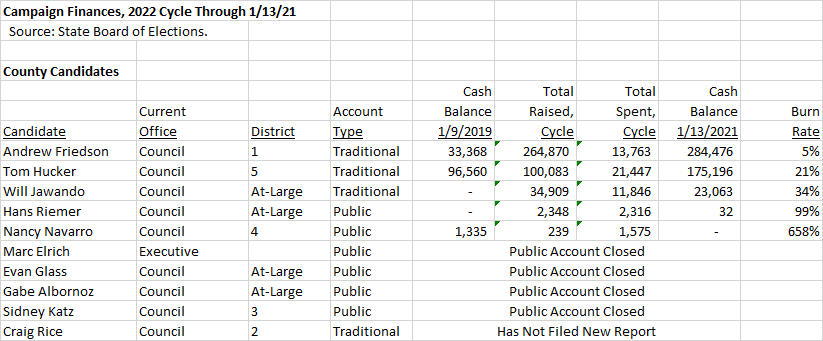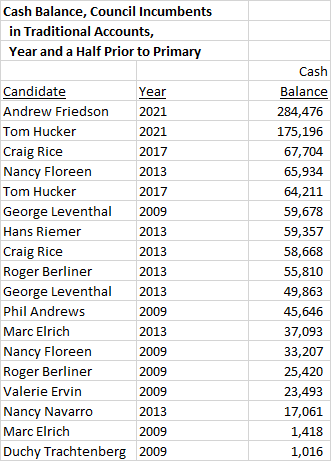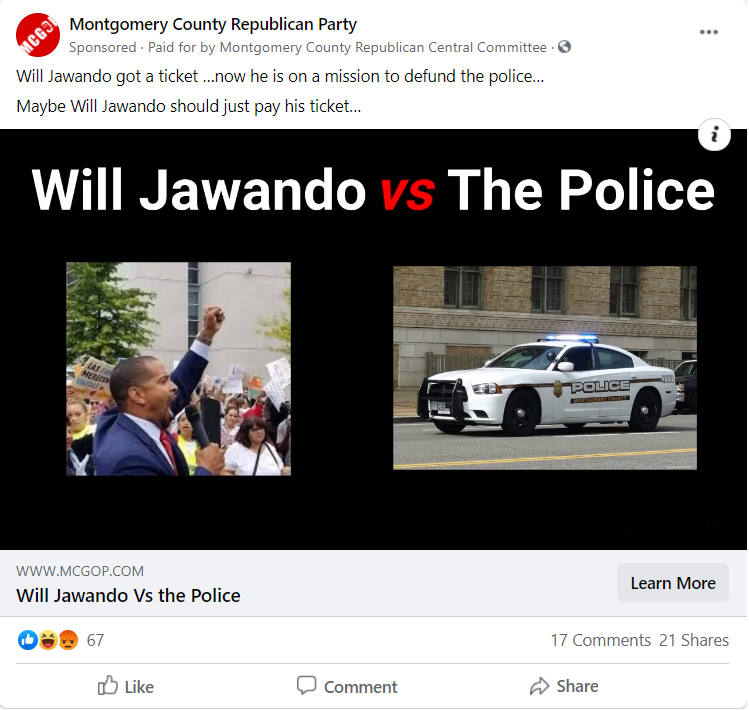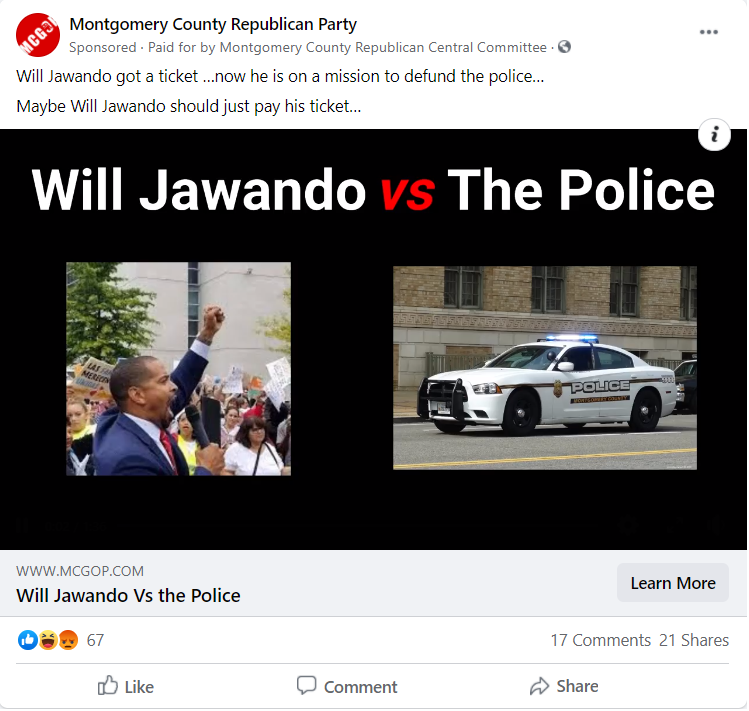By Adam Pagnucco.
In January 2014, District 1 County Council Member Roger Berliner posted a cash balance of $52,369 in his campaign finance report. Over the prior year, he had raised just $200. Berliner was a battle-tested politician as he had defeated an incumbent to get elected in 2006 and then beat a capable challenger in 2010. But he had clearly taken 2013 off, at least from a political perspective.
That caught the attention of former At-Large Council Member Duchy Trachtenberg, who had been ousted in 2010 and was looking for a way to get back into politics. Trachtenberg filed to run against Berliner hours before the filing deadline and was sitting on a cash balance of $122,575 from the last election. She looked like a threat as she was a former incumbent, had money and brought union support and some business support into the race.
Berliner went into overdrive, raising money hand over fist and locking down his district. He wound up thrashing Trachtenberg by 57 points. But if he had shown a large cash balance, Trachtenberg might not have run against him in the first place.
Berliner’s successor, Council Member Andrew “Real Deal” Friedson, is no doubt aware of this history.
The table below shows campaign finance data for the incumbent county executive and county council members. My presentation differs from other sources in two ways. First, I show money raised and spent for the entire cycle, not just the last year. Second, I calculate burn rate, which is the percentage of money raised that has already been spent. Burn rate is important because candidates need to keep it low in the beginning to save up for large expenditures like mail at the end.

Friedson’s numbers are the obvious headline. He raised $264,870 for the cycle and has a cash balance of $284,476. His burn rate was a rock bottom 5%, meaning he spent very little compared to what he raised. We’ll get into just how astounding Friedson’s cash balance is below.
District 5 County Council Member Tom Hucker also did well, raising $100,083 and finishing with a cash balance of $175,196. Hucker was aided by the facts that he had marginal opposition in the last election and he has been raising money for a potential run for comptroller. If he runs for his current seat, his cash balance is excellent. But in a race for comptroller, he trails actual and potential candidates Delegate Brooke Lierman ($588,292 on hand), Senator Brian Feldman ($346,320), Bowie Mayor Tim Adams ($253,130) and Senator Jim Rosapepe ($207,181).
At-Large Council Member Will Jawando was the top fundraiser among county council candidates in public financing last time. But after entering traditional financing, he reported a cash balance of just $23,063. Jawando is a talented candidate and he has time to fix this, but at this moment, he doesn’t look as strong as he should.
Most of the other incumbents were in public financing last time and either have no money or have closed and not reopened public financing accounts. They don’t need to have an active public account right now as they are not eligible for county matching funds until a year before the next primary (which will be held on June 28, 2022). But they should open public accounts soon.
At-Large Council Member Hans Riemer, District 2 Council Member Craig Rice and District 4 Council Member Nancy Navarro are term limited. They can’t run for council in the next election but they could run for other offices.
Let’s return to Friedson’s huge cash balance, which was posted a year and a half before the next primary. The table below shows cash balances reported by council incumbents in traditional financing a year and a half before the next primary over the last four cycles (2010, 2014, 2018 and 2022). There are a lot of good fundraisers in here, especially the at-large incumbents who often raised more than $250,000 for their reelections. Friedson’s number smokes them all and so does Hucker’s.

If Hucker runs for reelection to his current seat, it’s hard to see him having a problem. He has represented the core of his district since he was first elected as a District 20 Delegate in 2006 and his political roots there go back much farther than that. The recipe for running in that area is to go as far left as possible and it’s difficult to get to the left of Hucker.
Friedson is a different story. Some on the left dislike his alliance with the business community (which is reflected in his fundraising) and his fiscal conservatism (at least in highly relative MoCo terms). They note that he won his first primary with 28% of the vote in an 8-candidate race. Rumors of a primary challenge have circulated for months. Friedson’s opponents should be mindful of the district’s 30-year history of electing Republicans and Democrats with moderate tendencies as well as Friedson’s status as a hometown boy.
In any event, Friedson is sending a message to critics and potential opponents with his huge war chest. It goes something like this.
You can’t outraise me. You can’t outwork me. I am going to dominate every meaningful measure of political power in District 1. Save your time and your money and focus on other races because I am going to win.
That’s the message from the Real Deal. Will it be heard?






